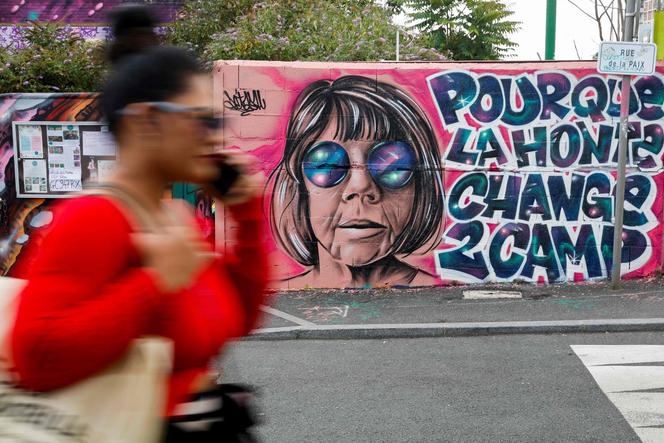


Since it began on September 2, the "Mazan rape trial," as it has come to be known because of the name of the small southern French town where the assaults took place, has received extensive coverage in the national and foreign press. Each day of the hearing is dissected live on news websites and 24-hour news channels and radio stations, with every detail reported on, from Gisèle Pelicot's statements, the health issues of her ex-husband and main defendant, Dominique Pelicot, and the statements made by the 50 other defendants. All of which testifies to the public's interest in this case, which combines the ordinary and the extraordinary, the banal and the horrific. "It's not bringing us a huge boost in audience numbers, but we're talking about it a lot and it's not driving viewers away," said Philippe Corbé, editorial director of French news channel BFM-TV.
Now questions about how significant this news story is are starting to emerge. We're witnessing a type of analysis in television and radio studios that we haven't seen before, along with words, expressions and concepts usually confined to different, specific spheres. What is this trial judging, beyond the men referred to the Vaucluse criminal court? Is it our collective lack of concern about the scale of sexual and gender-based violence, the patriarchal domination that controls our society, the "rape culture" that permeates our imagination, or the "male violence" of everyday life?
Several leading feminists have seized the opportunity to articulate, once again, ideas they've been repeating for years. "If not all men are rapists, rapists can apparently be any man," noted novelist Lola Lafon in the French daily Libération, for whom the 51 defendants are "of mediocre humanity."
"They weren't going to pass up a free rape close to home. They've been bottle-fed with hatred of women, with a contempt that gets aroused by the powerlessness of the other," wrote indignantly the journalist and writer Hélène Devynck in Le Monde. Several dozen men, including numerous public figures, also signed an appeal in Libération denouncing the "systemic violence perpetrated by all men, because all men, without exception, benefit from a system that dominates women."
Does the Mazan rape trial mark a turning point in public opinion? Feminist groups hope it will be a moment of raising awareness. Activist Ernestine Ronai, head of the first observatory of violence against women, in the Paris suburb of Seine-Saint-Denis, observed that "something is moving forward, progressing, in our understanding of rape." As the hearings go on, she sees "the lovely phrase coined by the Collectif Féministe Contre le Viol [Feminist Collective Against Rape]: 'Shame changes sides.' It's a beautiful reversal."
You have 72.26% of this article left to read. The rest is for subscribers only.
